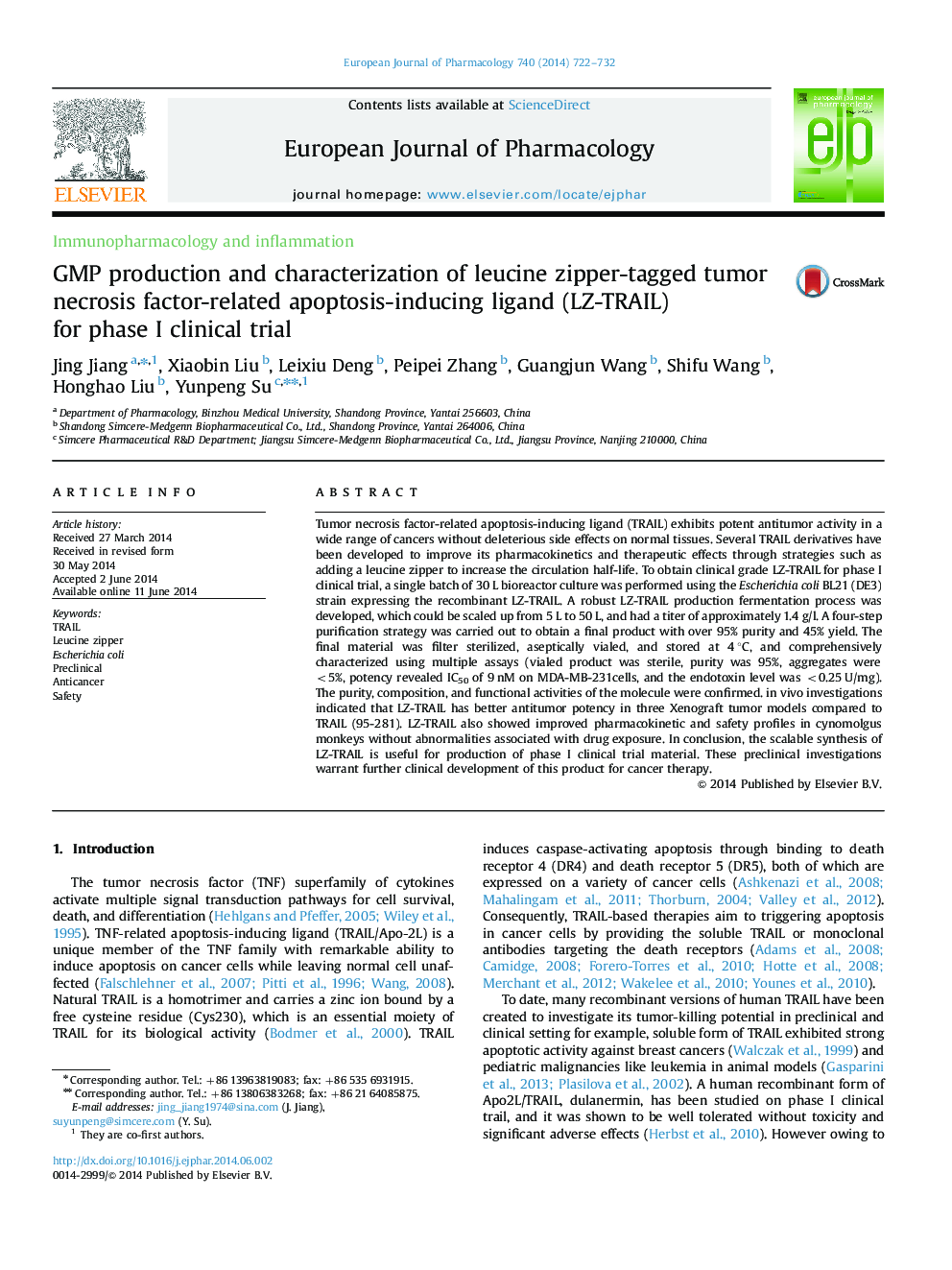| Article ID | Journal | Published Year | Pages | File Type |
|---|---|---|---|---|
| 2531685 | European Journal of Pharmacology | 2014 | 11 Pages |
Tumor necrosis factor-related apoptosis-inducing ligand (TRAIL) exhibits potent antitumor activity in a wide range of cancers without deleterious side effects on normal tissues. Several TRAIL derivatives have been developed to improve its pharmacokinetics and therapeutic effects through strategies such as adding a leucine zipper to increase the circulation half-life. To obtain clinical grade LZ-TRAIL for phase I clinical trial, a single batch of 30 L bioreactor culture was performed using the Escherichia coli BL21 (DE3) strain expressing the recombinant LZ-TRAIL. A robust LZ-TRAIL production fermentation process was developed, which could be scaled up from 5 L to 50 L, and had a titer of approximately 1.4 g/l. A four-step purification strategy was carried out to obtain a final product with over 95% purity and 45% yield. The final material was filter sterilized, aseptically vialed, and stored at 4 °C, and comprehensively characterized using multiple assays (vialed product was sterile, purity was 95%, aggregates were <5%, potency revealed IC50 of 9 nM on MDA-MB-231cells, and the endotoxin level was <0.25 U/mg). The purity, composition, and functional activities of the molecule were confirmed. in vivo investigations indicated that LZ-TRAIL has better antitumor potency in three Xenograft tumor models compared to TRAIL (95-281). LZ-TRAIL also showed improved pharmacokinetic and safety profiles in cynomolgus monkeys without abnormalities associated with drug exposure. In conclusion, the scalable synthesis of LZ-TRAIL is useful for production of phase I clinical trial material. These preclinical investigations warrant further clinical development of this product for cancer therapy.
